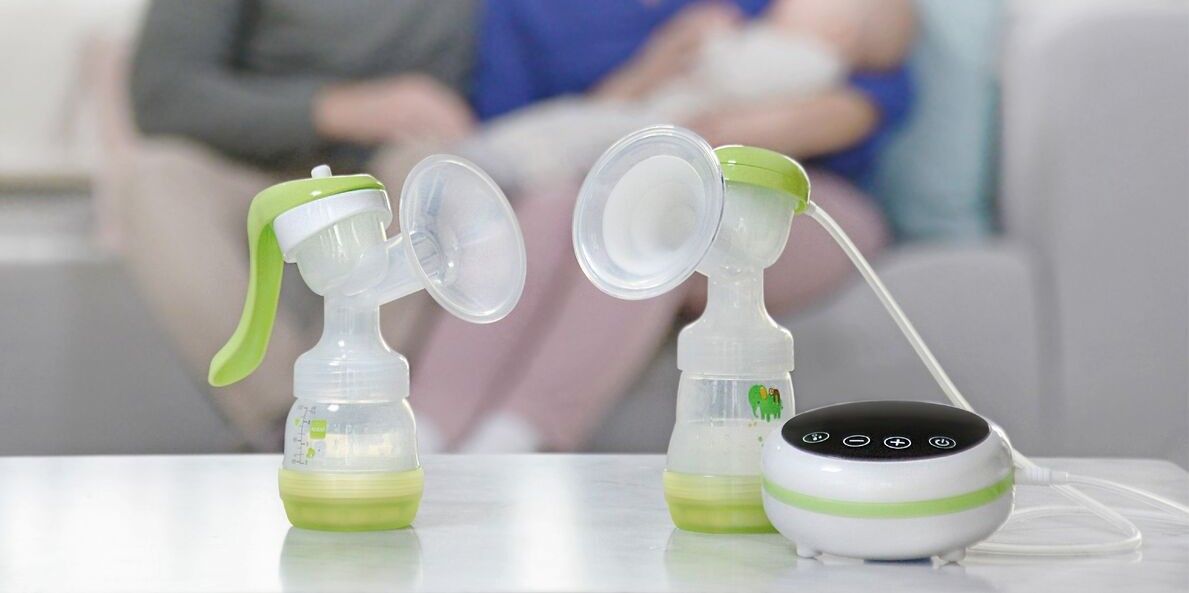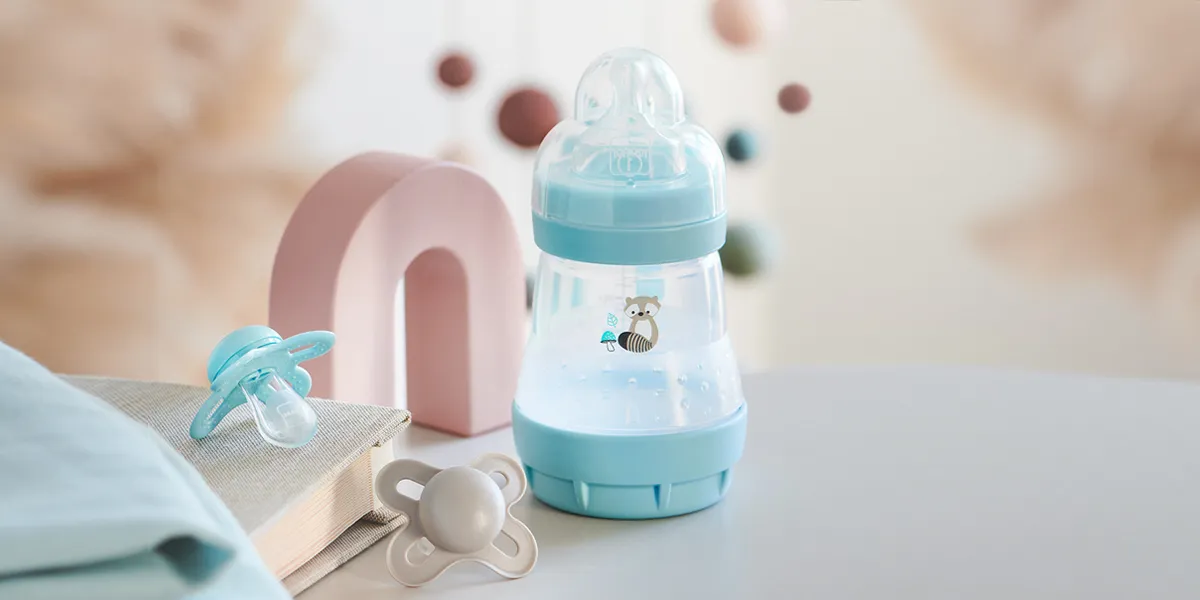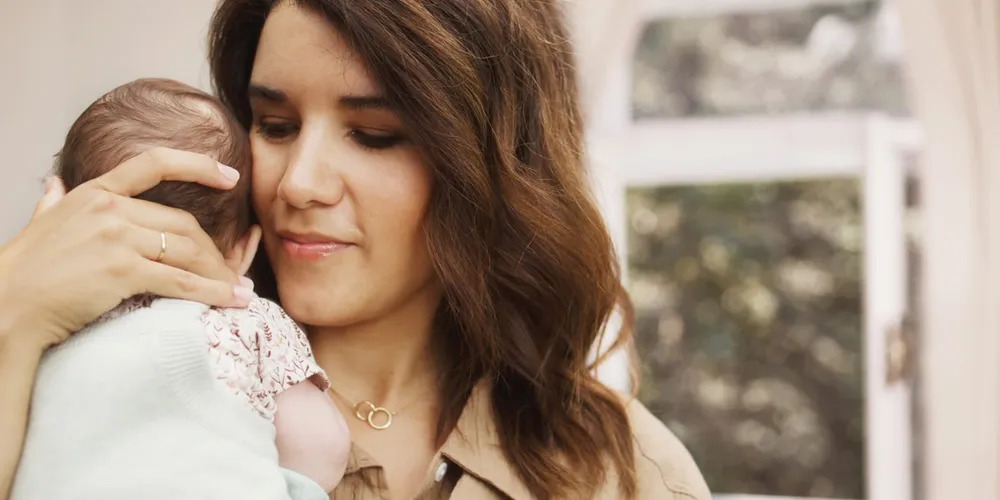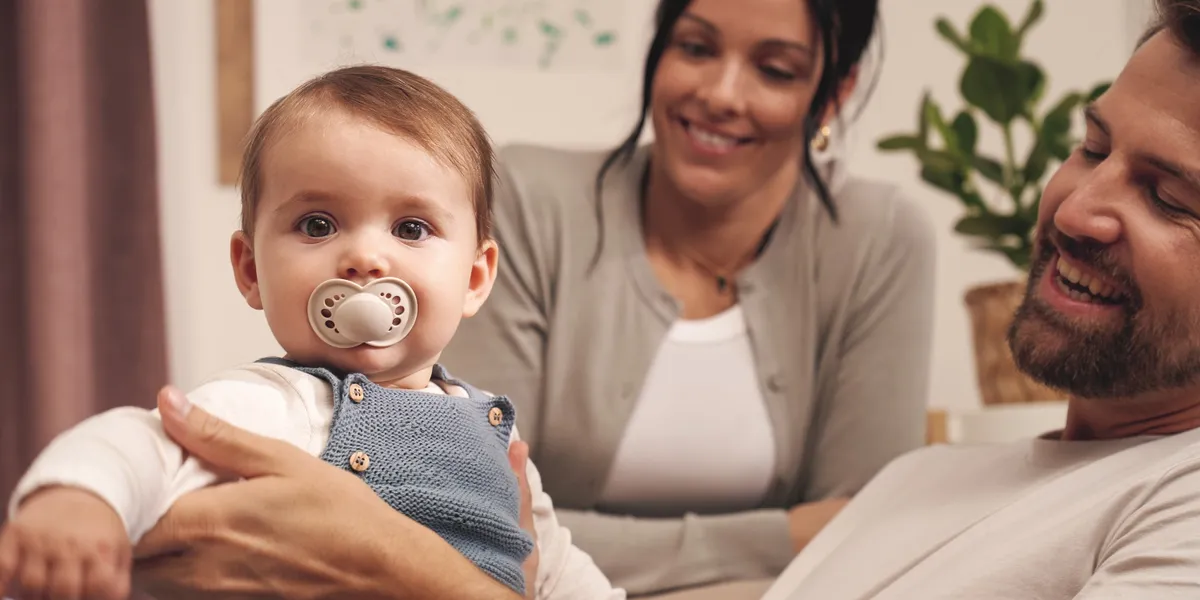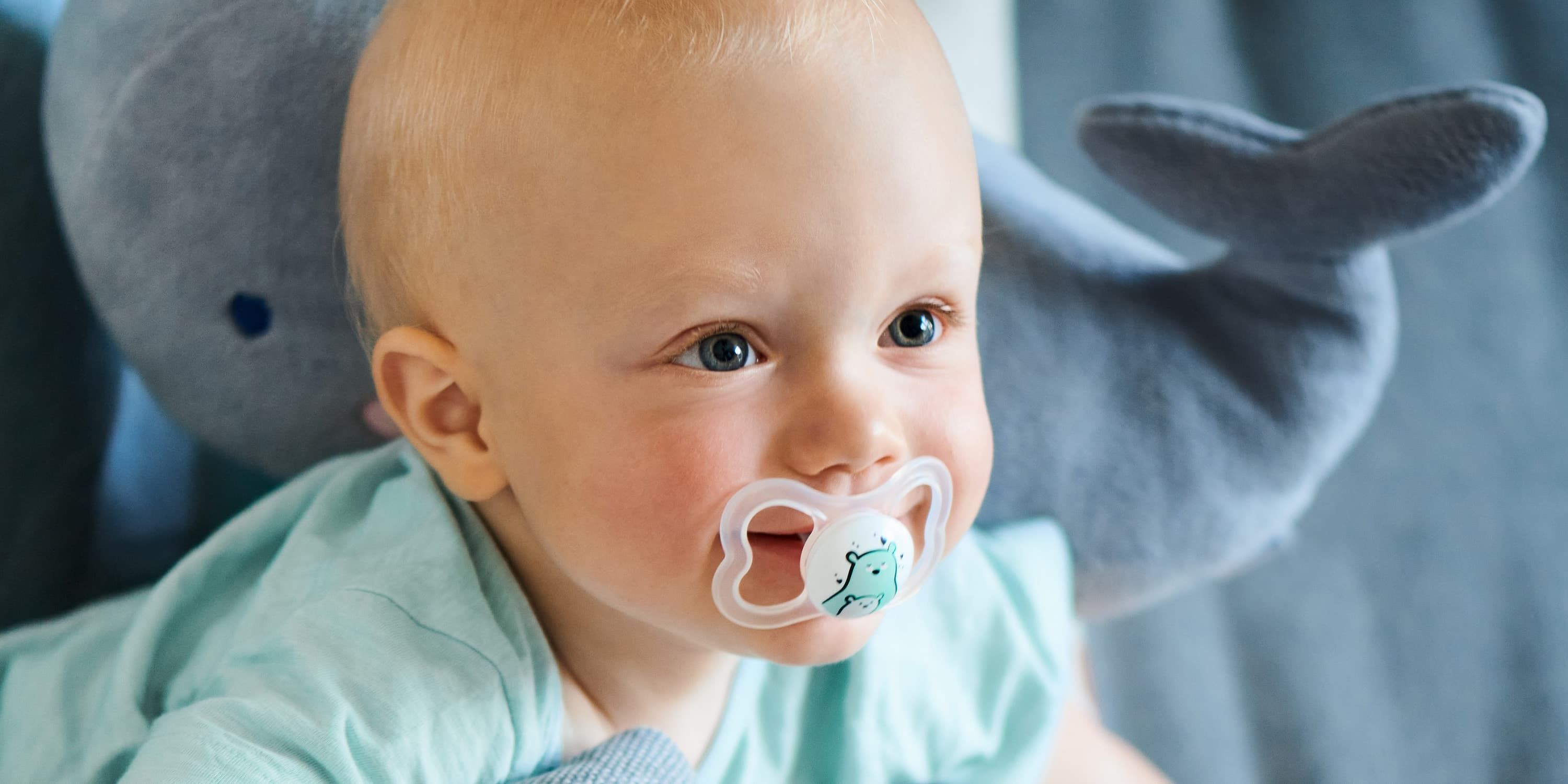It is important to inspect your child’s pacifier before each and every use. This is not only relevant for teething babies or babies with teeth. Even before babies’ teeth come in, their gums are very hard and can cause damage to any pacifier.
- Perform a ‘pull test’ (see video) prior to each use. To perform a ‘pull test,’ pull the pacifier in all directions. Carefully check for any signs of damage or weakness. If any damage or weakness is found, discard the pacifier immediately.
- Clean the pacifier before each use under warm running water. Do not use aggressive cleaning agents.
- Remember your MAM pacifier storage case can also be used as a sterilizer box! Remember to pre-wash the pacifiers before sterilizing (using any method of sterilizing). After sterilizing, wait 5 minutes before giving the pacifier to your baby.
- During cleaning, a small amount of water may enter the nipple. This is because of the special “air channel” that allows air to flow in and out of the nipple so that it can adapt to baby’s mouth, becoming flatter when baby sucks on it and leaving enough space for the tongue to move freely. This can be easily expelled by gently squeezing with clean fingers or sterilized nipple tongs.
- To ensure safety and hygiene replace the pacifier every 1–2 months.
- Never dip the nipple in sweet substances or medication. This can cause tooth decay.
- Do not leave a pacifier in direct sunlight, near a source of heat or leave in sterilizing solution for longer than recommended, as this may weaken the nipple.
STERILIZING
MAM pacifiers are supplied in a practical sterilizer box, which can be used for convenient and energy-efficient sterilizing in the microwave.
- Self-Sterilizing: Disinfected in 3 minutes – for up to 48 hours
- Fill box with water up to the 25ml mark
- Place pacifier(s) in the box with the nipple facing down
- Close box and heat in microwave for 3 minutes at 750-1000 watts















